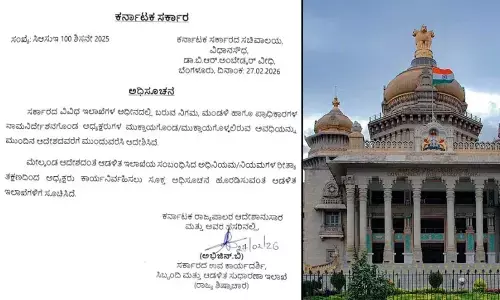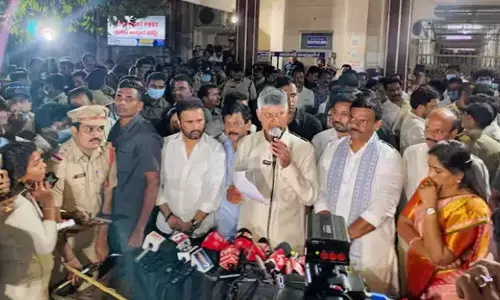7 questions you should be asking your employer

It is extremely important to ask the interviewer if the role already exists and where the current incumbent is moving to, says Savitha Gaekwad, managing partner, Antal International.
Who doesn't love an interesting candidate who can engage the interviewer in an interesting conversation?
A curious candidate is the best kind of candidate, says Zafar Rais, CEO, MindShift Interactive.
"I love an interesting conversation rather than a one-way Q and A," he says.
"It's always good to hear when a prospect asks questions such as -- How would I scale? How open are you towards people shifting from one area to another within the company?"
Is this a new or existing role?
It is extremely important to ask the interviewer if the role already exists and where the current incumbent is moving to, says Savitha Gaekwad, managing partner, Antal International.
The company specialises in recruitments across the globe.
If s/he is moving within the organisation, asking this question gives the candidate an indication of where the role could lead him/her, she says.
Who will I be reporting to?
Most organisations don’t have a clear reporting order, observes Tavleen Singh, HR-recruitment, Manpower Consulting.
This, she says could pose problems later, often leading to delay in decision making and delegation of functions.
"The answer to this question will help the candidate gain clarity on the flow of responsibilities and understanding the leadership and decision making powers better," adds Singh.
Could you define my career path in the organisation?
One of the most common questions interviewers ask candidates is: Where do you see yourself five or 10 years down the line?
This question helps HR understand your life goals and ambitions better.
At the same time, asking the hiring manager to define your career path helps you understand whether you are in the right place, says Rajneesh Avasthi, HR Manager, Career Focus Technologies Pvt Ltd.
"It also helps you understand the hierarchy and various levels of management so that you can strategise your career goals accordingly," adds Avasthi who interviews candidates for mid and senior level positions across India.
What is the appraisal structure of the organisation?
This has to be every employee’s favourite question, says Tavleen Singh.
"Most employees tell us that they were misinformed about the appraisal structure and notice period and came to know about it only after they joined the organisation. In response, I can only tell them that it was their job to find out before they signed the offer letter."
It is important to know who are the key stakeholders invested in making you successful in this new assignment, notes Savita Gaekwad.
Find out how frequently the organisation appraises its employees.
When was the last time they appraised their staff?
What is the average percentage of appraisal?
Do you allow employees to transfer roles within the organisation?
Within the first few months of joining an organisation, a majority of candidates -- mostly fresh graduates and soon-to-be-marrieds -- start sending requests to find out if there are opportunities in their hometown, says Tavleen Singh.
Organisations find it difficult to meet the demands of employees who complain of 'family pressure' and 'stress' as major reasons to look for a transfer of role.
"Sometimes, organisations include a clause in the work contract stating a minimum period you will have to serve in the organisation before applying for a transfer," says Singh. The problem is that employees sometimes sign on the dotted line without reading these tricky clauses, she says.
If I am shortlisted, how soon do I have to join?
This is one question very few people analyse, feel experts.
Candidates often say yes to a job offer only to realise that they need to serve a longer notice period at their current place of work, says Rajneesh Avasthi, HR Manager, Career Focus Technologies Pvt Ltd.
Avasthi gives an example of how an employee at mid-manager level had delayed his joining date by 20 days last year, which caused the company to incur losses of a few lakh rupees.
What is the next step in the hiring process?
In his eight-year career as a hiring expert, Avasthi reveals that only two candidates have asked this question so far.
"We expect every candidate to be excited about the job opportunity. If you ask questions like 'when can I expect your call?' it might disappoint the hiring manager and make you look greedy.
"However, a question like 'what is the next step in the hiring process' will most definitely not be dodged and also help you gauge what to expect next," he advises.
Dr Zubin R Mulla, Associate Professor at the Tata Institute of Social Sciences advises candidates to "do their homework well and read everything about the company and the role they are being interviewed for."
And he warns, "While asking smart questions will put you in a positive spot, trivial and obvious questions will make you look like a complete fool and you may perhaps even lose out on the opportunity."










